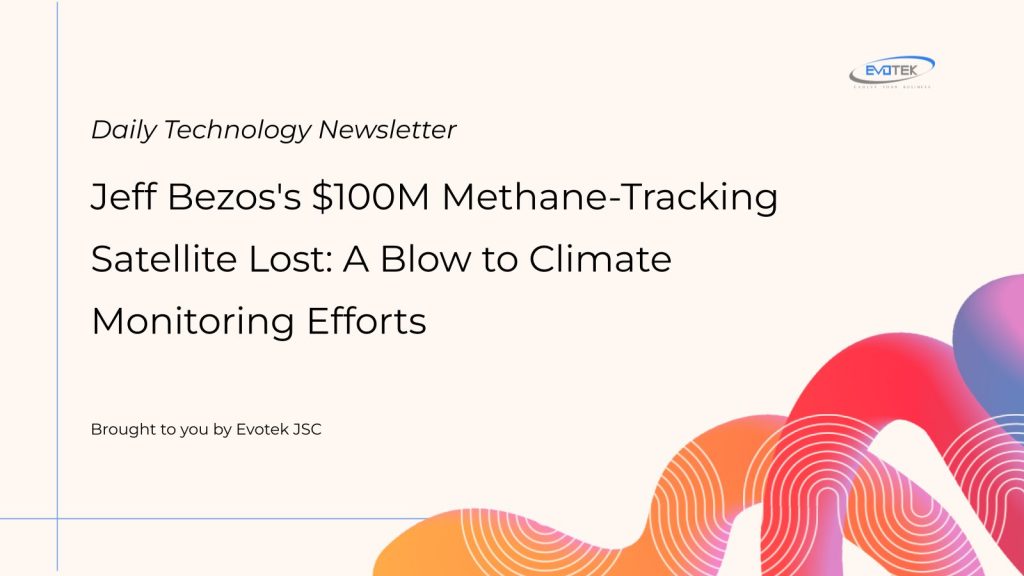A cutting-edge satellite dedicated to tracking global methane emissions, significantly funded by Amazon founder Jeff Bezos, has been declared lost in space. The MethaneSAT, which was a cornerstone of a major climate initiative, ceased transmitting signals on June 20th and is now considered unrecoverable by its operators.
Developed and managed by the U.S. non-profit Environmental Defense Fund (EDF), the MethaneSAT project received a substantial $100 million grant from the Bezos Earth Fund. Launched in March 2024, the $88 million (£64m) satellite had been actively monitoring methane levels, particularly in oil and gas production regions, until contact was abruptly lost. Its last known location was over Norway.
A Mission Deemed “Remarkable Success” Despite Loss
Despite the disheartening loss, the EDF emphasized that the MethaneSAT mission had already yielded invaluable scientific and technological insights. In an official statement, the organization highlighted the satellite’s significant contributions to understanding methane emissions.
The statement read, “The mission has been a remarkable success in terms of scientific and technological accomplishment, and for its lasting influence on both industry and regulators worldwide.” It further detailed how MethaneSAT provided critical data on the distribution and volume of methane released from various production areas. The mission also developed an unprecedented capability to interpret space-based measurements and translate them into actionable methane release volumes, a capacity deemed valuable for future missions.
Understanding Methane’s Impact on Climate Change
Methane is a potent greenhouse gas, estimated to contribute approximately one-third of the human-induced temperature rise globally. MethaneSAT was equipped with advanced spectrometers, enabling it to detect even low levels of methane across vast areas, making it one of the most sophisticated methane-tracking satellites ever deployed.
During its operational period, the satellite made several groundbreaking findings, including observations of methane levels in some areas that were ten times higher than previously reported. This data significantly advanced the global understanding of methane emissions.
Steven Hamburg, the project lead, remarked in May on LinkedIn that MethaneSAT was “ushering in a new era of transparency and problem-solving.” He acknowledged the ambitious and challenging nature of space missions but stressed, “But the climate can’t wait, and neither can we.”
The Environmental Defense Fund has not yet ruled out the possibility of launching another satellite to continue the vital work initiated by MethaneSAT, underscoring the ongoing commitment to global climate monitoring efforts.

 日本語
日本語 한국어
한국어 Tiếng Việt
Tiếng Việt 简体中文
简体中文